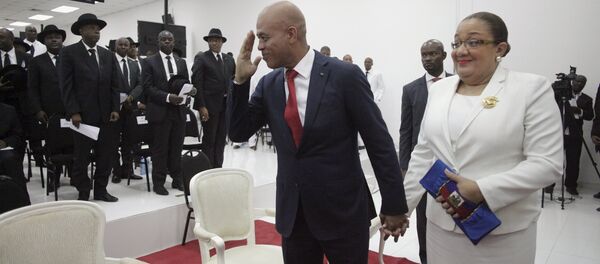"That's why in 1914 the military elites of the German Reich quickly decided that it would be better to eliminate the threat of a resurgent Russia, than wait to eliminate it later. The Treaty of Brest-Litovsk forced conditions on the young Soviet Russia that make the Treaty of Versailles seem almost moderate."
The Soviet Union lost more than 25 million people during the Second World War, but finally emerged from the devastation a military superpower capable of exerting control on satellite states in Central and Eastern Europe, Osthold wrote.
"Since this time it is usual in the West to regard Moscow's politics through a moral prism and evaluate them on that basis. In principle there is nothing wrong with doing this, so long as you apply the same standards to yourself."
"But that rarely happens, which is why the moralizing attitude of the West suffers under a crude double standard. Those who were happy to take the USSR's help against Nazi Germany could not or would not understand, after the war ended, why Moscow was not willing to return to the borders of 1939."
Osthold holds the behavior of the Soviet leadership in the same regard as the US government, which during the same era sought its own influence in Western Europe. This took the form of "strengthening" democratic structures and a free market economy within the American sphere of influence that induced a period of prosperity.
"In truth the US hardly did this from altruism, but was above all pursuing geopolitical interests, as great powers do. Since the USSR, in contrast, was building a socialist system, it was clear: Moscow is an enemy of the free world and a threat to world peace," Osthold wrote, reminding readers of Ronald Reagan's 1983 speech in which he described the USSR as the "Evil Empire."
Since the 1990's, when the West refused to treat Russia as a great power and rather enjoyed focusing on the public appearances of President Yeltsin, Russia's resurgence has against been treated as a threat and its foreign policy is "continually morally criticized."
"One doesn't have to be a fantasist to imagine what the USA would do if there was a revolution on Hawaii and they were in danger of losing their Pacific Fleet."
"Like any great power Washington would also enforce its own interests by military means – just as Great Britain did in 1982 when it declared war on Argentina for daring to question the British claim on islands that lie on the other side of the world."
While European nations have mostly given up their world power aspirations since 1945 that does not give them the right to morally criticize Moscow for refusing to do the same, and "particularly not when their closest ally does the same thing for decades, almost unmolested," Osthold concluded.




